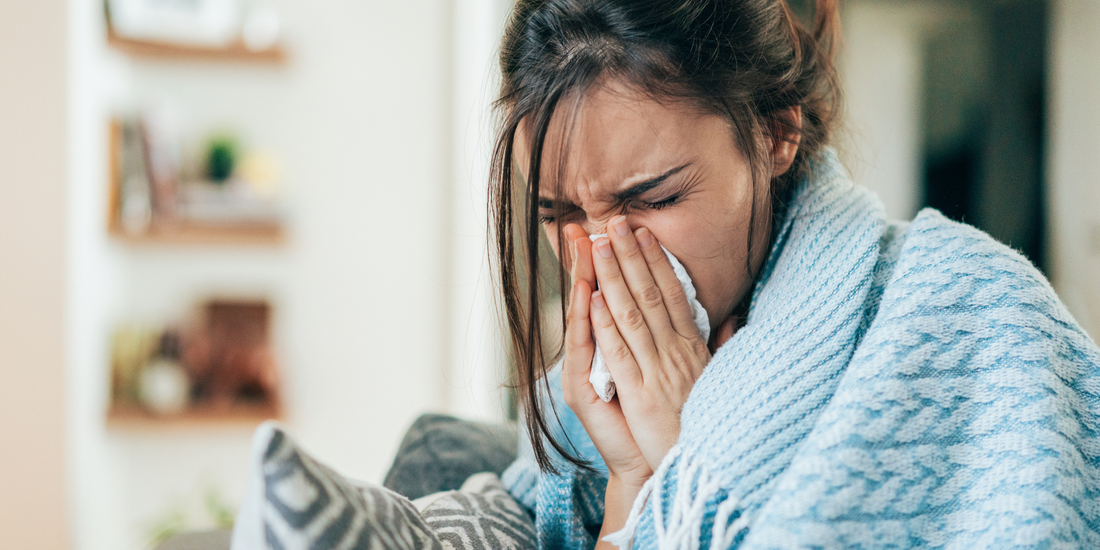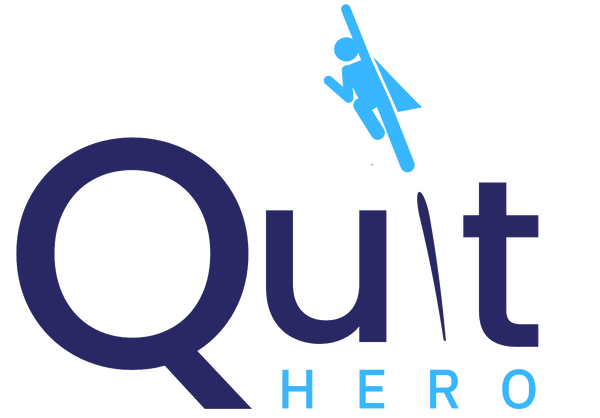
How Smoking Affects the Immune System and Slows Healing
Share
Most people know smoking isn’t great for your lungs or heart, but did you know it can also weaken your immune system and slow down your body’s natural healing? Whether you smoke yourself or care about someone who does, understanding this effect can help you make smarter choices for your health. In this blog, we’ll break down how smoking impacts your body’s ability to recover, why injuries and illnesses take longer to heal, and the real benefits quitting can bring.
What is the Immune System?
Your immune system is responsible for defending your body against infections. It helps prevent germs from entering your body, thereby assisting in the healing process if you suffer any injuries. The better functioning your immune system is, the less likely you will suffer from health issues and the faster you will recover from them.
For smokers, the weather and environmental conditions play a more damaging role as your immune system’s ability to function gets compromised. To provide an analogy, it would be similar to sending a security team to work with half their essential gear missing.
The Impact of Smoking on Immune System Deficiency
The process of smoking exposes your body to chemicals, which may weaken your immune system. The details below show how smoking can specifically weaken the immune system.
Your immune system cells are susceptible to getting hurt. Your immune system comprises both innate and adaptive immune responses. The result of smoking is that both your innate and adaptive responses are damaged to some degree. Fewer immune cells are available to combat infection.
There is an increase in inflammation. Smoking leads to low-gradelow-grade inflammation in the body,, which makes it difficult for the immune system to function efficiently.
Germs can enter the body easily. The protective covering of your nose, mouth, and lungs becomes weakened, allowing pathogens to enter more easily.
Response to vaccinations may not be effective. Smokers, as a result of heterogeneous reductions in response ability, tend to underrespond to vaccination challenges, and thus do not provide adequate protection against infections like flu, COVID-19, and others.
If your immune system is likened to Superman, smoking is without doubt kryptonite. This is because smoking undermines the immune response a smoker has while simultaneously exposing them to infection.
Smoking and Healing
Smoking not only causes frequent illnesses but also prolongs the healing process. Here’s how:
-
Reduced oxygen: Smoking narrows blood vessels, which reduces the amount of oxygen delivered to different parts of the body. It is critical during the recovery period.
-
Reduced healing cells: Smoking reduces the number of white blood cells and other healing cells responsible for aiding and defending the body.
-
Increased chances of infection: If you smoke, wounds such as cuts, scrapes, and even surgical wounds have a higher risk of becoming infected.
-
If you have had a surgery that went wrong or took a long time, which is not usual, then smoking is probably the reason.
Research On Smoking And The Immune System
For many years, lawyers have been exploring smoking and how it affects the immune system. The findings were as follows :
-
Both pieces of the immune system are interfered with by smoking: the one that rushes, which is called innate (“born with”) and the one with memories, which is called adaptive( “remembers past infections).
-
Immune cells, such as those affected by nicotine and carbon monoxide smoke, and nicotine, are altered in their functioning. They make it harder to fend off infections and slow down the recovery process.
-
Smoking both triggers inflammation and weakens the body’s defence mechanisms, increasing the likelihood of getting sick and developing chronic health issues.
-
Even though quitting smoking leads to immediate health benefits, some of the effects on the immune system can persist for years. Most individuals, however, experience significant improvements within a few months.
Why Does Healing Matter?
Everyone can benefit from healing. Having the ability to repair your body faster enhances your effectiveness in sports and manual labour, and makes you healthier, reducing the chances of developing chronic conditions. When healing takes time, it may lead to scarring, infections, and worsening health complications in the future.
Your Guide to Immunity System Maintenance
Below are some measures to consider to keep your immune system in good shape:
-
Stopping smoking: This is the most critical step to take. Your immune system will begin recovering, and you will become ill less frequently.
-
Maintaining a balanced diet: Eating fruits, vegetables, and whole grains allows your body to obtain essential vitamins that defend against germs.
-
Sleeping at appropriate times: Your body performs a repair process while you sleep, so getting an adequate amount of sleep improves your overall sleep schedule.
-
Exercising: Regular physical activity strengthens the immune system, making it beneficial.
-
Hand hygiene: Avoids germs from coming in contact with your body.
Australians With Quit Smoking Support
You can get assistance for Quittring Programs provided by Australian clinics. Helping patients who seek to quit smoking by providing actionable plans tailored to their needs, medical professionals guide patients through the cessation process by addressing queries and discussing alternative techniques, like nicotine and prescription replacements.
Recovery After Quitting a Routine
Fortunately, there is some good news. Recovery starts happening soon after quitting smoking:
- In a matter of weeks, noticeable changes occur, including tissue regrowth, enhanced blood circulation, a strengthened immune system, and a boosted defence system.
- In a matter of months, There Was a Decrease in in respiratory infections.
- Within a year, the risk of serious illness decreases, and the likelihood of cuts and wounds healing increases.
Every day free from smoking contributes to your body’s repair process, even if some factors, such as immune memory, can take longer to recover from.
Tips for Quitting
-
Set a quit date. Choose one and commit to your decision.
-
Tell your friends and family. Emotional backing plays a crucial role.
-
Use tools and support available from services like Quitline. Consider talking ot a healthcare professional to help you get started.
-
Stay busy. Take up new hobbies or activities that distract you from thinking about smoking.
-
Reward yourself. Commemorate each day or week without smoking.
Your Immune System Deserves a Fresh Start
The first step of smoking cessation is the most effective action for self-protection. The immune system is the best body defence, so bolster it by choosing to stop smoking now. Every stride you take brings you closer to an improved you.
